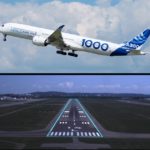The Federal Aviation Administration (FAA) has given the go ahead for key certification test flights to be started on the grounded Boeing 737 MAX.
In an email to Congress, the FAA said its Type Inspection Authorization (TIA) Board had completed its review which would clear the way for flight certification testing to begin from today [June 29]. The entire 737 MAX fleet has been grounded since March 2019 after two fatal crashes in five months which killed 346 people.
Test flights could begin as early as today
The FAA’s email, reported by Reuters, read: “Flights with FAA test pilots could begin as early as tomorrow, evaluating Boeing’s proposed changes to the automated flight control system on the 737 MAX.”
It added: “FAA has not made a decision on return to service” and has identified number of additional steps.
Boeing has faced turbulent times over the last couple of years. The grounding of the 737 MAX has been compounded by a freefall in demand for new jets caused by the coronavirus pandemic.
Testing will include “wide array of flight manouevres”
The FAA email said testing would last several days and would include “a wide array of flight manoeuvres and emergency procedures to enable the agency to assess whether the changes meet FAA certification standards.”
The email added that the FAA had not made a decision on the MAX’s return to service as there were a number of additional steps which also needed to be taken before commercial operation of the aircraft could resume.
Greater rigour than original Boeing test flights
Reuters has reported that the test would be more rigorous ad go beyond previous Boeing test flights. A source told the news agency that a 737 MAX 7 will be outfitted with test equipment at Boeing Field near Seattle.
During the flight, the crew would run a number of prescribed mid-air scenarios such as steep-banking turns, progressing to more extreme manoeuvres on a route, which would be primarily over Washington state. Pilots will intentionally trigger the stall-prevention software known as MCAS which was a contributing factor in the crashes in Indonesia and Ethiopia which killed all on board. In both of the crashes the flight control system was triggered by faulty sensor readings which pushed both planes into nosedives.
MCAS reprogramming will be key
The tests are meant to ensure Boeing’s reprogramming of the system will prevent the scenario pilots encountered before both crashes, when they were unable to counteract MCAS. The FAA would also need to approve new pilot training procedures and other reviews. Reuters has reported that approval for the MAX to resume operations was unlikely to take place until September at the earliest.
Regulators in Europe and Canada will conduct their own assessments and may require additional changes after the 737 MAX is cleared to return to service.
Subscribe to the FINN weekly newsletter

